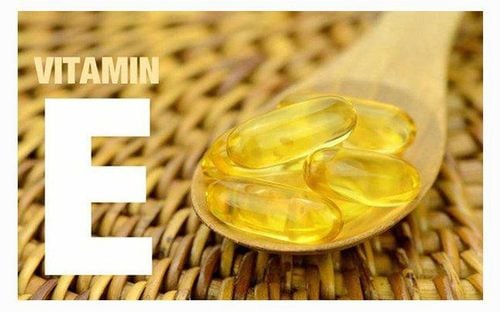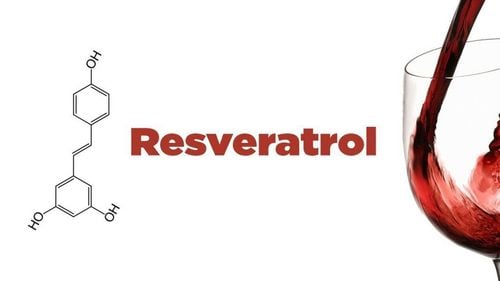This is an automatically translated article.
The jute vegetable plant may not be known to many people, but it is a plant that is grown mainly in Asia, the Middle East and some parts of Africa. Jute vegetables are also used as a spice, adding a specific flavor to dishes such as soups, stews and sauces.
1. What is jute vegetable?
Jute vegetable, scientifically known as Corchorus Olitorius, is grown in many countries and territories in Asia, some parts of Africa and the Middle East. The leaves of the jute plant are dark green, with serrated edges.
What are the benefits of eating jute vegetables? In fact, jute is one of nature's greatest gifts, as it is a diverse plant with many different uses. Jute leaves are the most beneficial part of the plant, they are used as a food source in many different countries. They make great soups and add a unique flavor to dishes. The leaves of the jute plant have also been found to have many medicinal benefits which will be discussed below.
1.1 Protect Eye Health Most eye diseases are the result of poor diet and lack of nutrients. Several nutrients have been linked to improving eye health and preventing eye diseases and disorders including Vitamin B6 and folic, among other vitamins. Jute leaves contain 0.0496 mg of vitamin B6, which is 30% higher than the recommended daily value. Eating jute leaves regularly can help slow the onset of certain eye diseases, including age-related degeneration.
1.2 Jute leaves are rich in antioxidants Jute leaves are rich in Vitamins E, A and C. These three nutrients are powerful antioxidants that help protect cells from free radicals. The antioxidants in this leaf may also help improve vision and fertility, among other effects.

Lá rau đay rất giàu chất chống oxy hóa tốt cho sức khỏe người dùng
1.3 Fight colds and flu The vitamin C found in jute leaves is essential in helping the immune system fight off colds and viruses. In addition to preventing colds, vitamin C can also keep you from developing other complications like lung infections and pneumonia.
1.4 Improve the digestive system Jute leaves are rich in fiber. Fiber is one of the main factors that help regulate the digestive process. Eating jute vegetables on a regular basis can help prevent constipation, soften stools, and speed up the digestive process. Having a high fiber diet also increases the efficiency of absorption of nutrients and it reduces symptoms such as cramps and bloating.
1.5 Fight the inflammatory response Is it good to eat jute vegetables? One of the most well-known medicinal benefits of jute is its ability to fight inflammation in the body. Because of its high antioxidant content, eating jute leaves can help protect the body from damage caused by inflammation. It is also believed that jute leaves have anti-inflammatory properties. In a study done in 2015 it was found that jute plant can potentially treat inflammation. By eating jute leaves regularly, you can prevent inflammation.
1.6 Aids in Weight Loss Jute has many important properties that help with weight management. Their high fiber content is essential in improving digestion and keeping you feeling full for longer. Research has also shown that eating jute vegetables can help lower bad cholesterol (LDL) levels and increase good cholesterol. Jute leaves have about 0.222mg of copper which can significantly help reduce the risk of cardiovascular diseases as well as gain weight in a healthy way.
1.7 Improves Sleep For people with sleep disorders like sleep apnea and insomnia, jute leaves can be very helpful. Jute leaves are rich in magnesium, a mineral that helps treat and improve these conditions. Magnesium aids in the release of hormones that relax and calm the nerves. By increasing your magnesium intake, you can improve your sleep quality for comfortable and uninterrupted sleep.
1.8 Supports cell growth and improves skin health Skin and cells need more vitamin A to accelerate wound healing and skin regeneration. Vitamin A is essential for the growth of all epithelial cells both externally and internally and it also helps prevent skin cancer. Jute leaves have a lot of Vitamin A so eating it regularly can help prevent various skin conditions like dull skin, acne, wrinkles and keep your skin looking young and healthy. Vitamin A found in jute leaves also helps promote healthy hair growth.

Rau đay có thể hỗ trợ tăng trưởng tế bào và cải thiện sức khỏe làn da
1.9 Maintain healthy teeth and gums The benefits of eating jute leaves work for both teeth and gums. They contain calcium that helps keep the jawbone strong and healthy. A healthy jawbone will keep your teeth tight and make it harder for bad bacteria to grow. To keep teeth and gums free of problems, you should maintain a calcium-rich diet, including eating jute vegetables daily, especially for young children.
1.10 Prevent Asthma People suffering from chronic asthma can normalize their breathing with the help of magnesium which relaxes bronchial muscles and regulates breathing. Jute vegetables can provide enough magnesium needed for the body. Therefore, eating jute vegetables regularly is recommended to minimize the discomfort caused by asthma.
2. Ways to process jute vegetables
Depending on different countries, jute vegetables are processed and used in many ways such as:
Boil jute vegetables then make salad with lemon and olive oil. Japan has imported dried jute leaves from Africa and is using it as a coffee and tea substitute. In Europe, jute leaves are used as a soup, which can be steamed and pureed, mixed with chicken, or made into a soup the way the Japanese make it like molokhiya. Like water spinach or other greens, jute leaves can be cooked as a main ingredient in dishes, or chopped so they can be better combined with other ingredients. The leaves and young shoots are eaten in India. The leaves are boiled in water like cabbage and eaten with other foods or with just a little salt added. Jute leaves are used as a spice to enhance the flavor of soups and stews. The dried leaves can be used as a thickener in soups. Young leaves are added to salads. It can be seen that eating jute vegetables brings a lot of health benefits and helps prevent many diseases. Depending on your needs and preferences, you can process jute vegetables under different dishes to suit your taste.
If you are having a certain health problem and want to add jute vegetables in your daily diet, you can consult with doctors and nutritionists at Vinmec International General Hospital. . In fact, although jute vegetables bring many values, but using them properly and for the right purposes can bring benefits to users.
Please dial HOTLINE for more information or register for an appointment HERE. Download MyVinmec app to make appointments faster and to manage your bookings easily.
Reference source: jutebag.co.uk - food.ndtv.com












